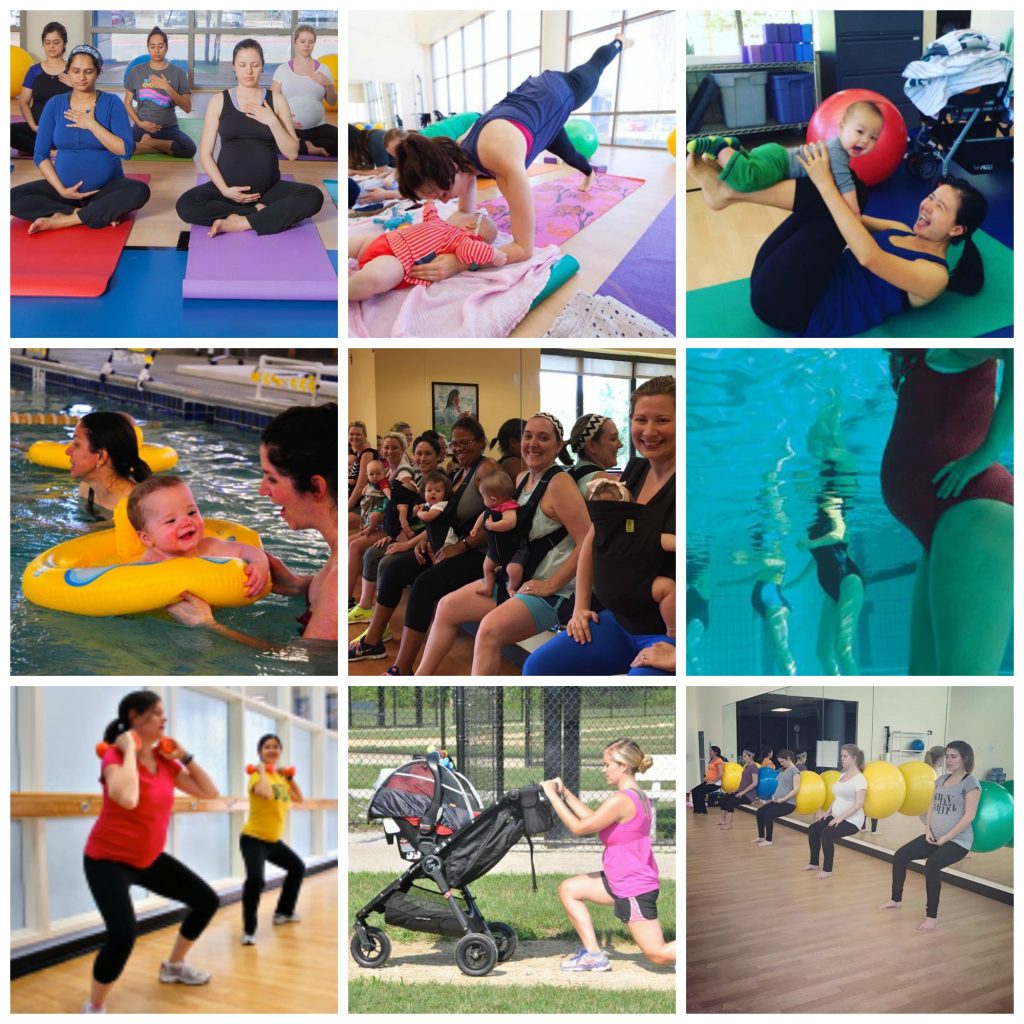Note from the Founder of Oh Baby! Fitness, Clare Schexnyder: I find this new research absolutely validating! Exercise can help new Moms avoid depression! We’ve seen it in our classes over the last 12 years, and it’s the reason I started this business after having my baby 13 years ago. I suffered from serious postpartum depression. I was sleep deprived, hormonal and didn’t want to have any outside help for me and my baby. I didn’t want anything to do with my child, but being a control freak, wouldn’t let anyone else touch her either. An awful situation for mom and baby. That lasted about 12 weeks, and finally a friend took me to a new parents support group at a local hospital. The Moms and Dads I met there, asked me to go for a walk EVERY day. That exercise, the new friends I made, and a little Zoloft, saved my life, and the idea for Oh Baby! Fitness® was born. Now, to have scientific research that exercising during your pregnancy and after can help new Moms avoid depression is fantastic!! It means, if you’re pregnant or a new mom, you should get moving to feel better fast! Come join us for a class to get fit, bond with your baby and make new friends!
Exercising during and after pregnancy reduces the risk of getting depression after having baby. Simply walking with a stroller can ease symptoms.
- Studies tracked almost 1,000 mothers who were offered different exercise programs
- Exercises included aerobic activity, Pilates and yoga
- Researchers found those who exercised had fewer depression symptoms after birth
- 1 in 9 women suffer from postpartum depression – the most common complication after childbirth. (CDC)
Exercising during and after pregnancy helps Moms avoid depression after having a baby, researchers have discovered. Even low-intensity exercise, such as walking with a baby stroller, was linked to a lower likelihood of depressive symptoms in new mothers.
Scientists tracked the mental health of almost 1,000 mothers who were offered exercise programs during and after pregnancy as part of a new study. The women who exercised displayed fewer signs of depression following the birth of a child.
The benefit of having fewer symptoms was seen even among women who did not meet the cutoff for a depression diagnosis.
“We expected that physical activity could reduce postpartum depressive symptoms,” said researcher Celia Alvarez-Bueno, a PhD student at the University of Castilla-La Mancha in Spain. “However, we were pleasantly surprised when we found that exercise after pregnancy also reduced depression among the women who didn’t have diagnosable symptoms.”
Most exercise programs lasted for three months or longer and recommended three to five exercise sessions per week, but the current study didn’t draw conclusions or provide recommendations about the type or length of exercise that would be most beneficial.
The American Congress of Obstetricians and Gynecologists (ACOG) recommends pregnant and postpartum women get 150 minutes of moderate intensity aerobic activity every week.
‘The negative consequences of postpartum depression not only affect the mother but also the child, who can suffer poor emotional and cognitive development,’ said researcher Celia Alvarez-Bueno, a PhD student at the University of Castilla-La Mancha in Spain.
Symptoms of postpartum depression can include anxiety attacks, insecurity, irritability, fatigue, guilt, fear of harming the baby and a reluctance to breastfeed. The symptoms start within four weeks of delivery and are considered severe when they last for more than two weeks, according to the researchers.
‘That’s why it’s important to test the most effective strategies to prevent this disorder or mitigate the consequences,’ Ms Alvarez-Bueno said.
The study team analyzed data from 12 controlled trials of exercise interventions during or after pregnancy between 1990 and 2016 that addressed the effects of physical activity on postpartum depression. The studies included a total of 932 women and all examined the severity of postpartum depression as well as including basic information about the length, frequency, type and intensity of the exercise. The exercises used in the various studies included stretching and breathing, walking programs, aerobic activity, Pilates and yoga.
“We know that exercise is just as effective as anti-depressants for adults. The trick is to get them to do the physical activity,’ said Beth Lewis of the University of Minnesota in Minneapolis, who wasn’t involved with the study. “With postpartum depression, it’s even more complicated due to the increased stress and sleep deprivation after having a baby. We’re starting to learn more about exercise and how it helps.”
Future studies should include more data about the types of physical activity programs that could reduce depression, the study authors write. Health providers should know more about the duration, intensity and frequency of exercise to recommend to new mothers, Alvarez-Bueno noted.
“It remains unanswered how these characteristics improve postpartum depression prevention,” she said. “More research addressing this issue is urgently necessary because of the influence on both the mother and child.”
“This study highlights that the abundance of benefits achieved from exercise during pregnancy extends to psychological health,” said Katherine Ingram, a pregnancy exercise researcher and assistant professor at Kennesaw State University. “Even more noteworthy is that the effect of exercise on post-partum depressive symptoms was found to be higher than that seen with traditional treatment. Previously, the research on this topic was inconsistent, but the advantage of meta-analyses is the ability to produce an overall conclusion using the combined data of multiple studies.”
Ingram was not involved with this study, but has her own prenatal exercise study in progress. She’s also an advisory board member of Oh Baby! Fitness. She finds this news exciting, “This is yet further evidence that women in uncomplicated pregnancies should follow the recommendations of the American College of Obstetrics and Gynecology and participate in at least 30 minutes of exercise almost every day.”
The research was published in the journal Birth.
Source Study: http://onlinelibrary.wiley.com/doi/10.1111/birt.12294/abstract
Source article: Reuters






